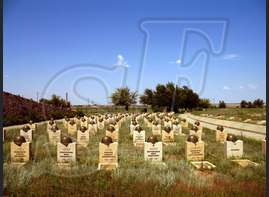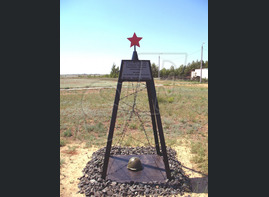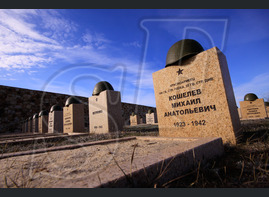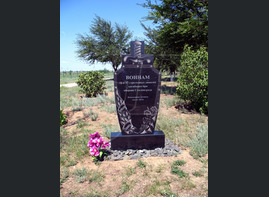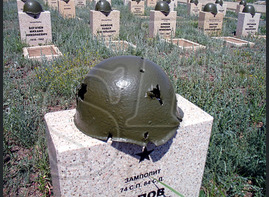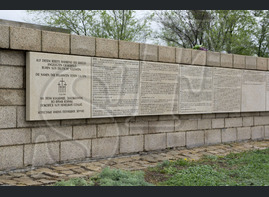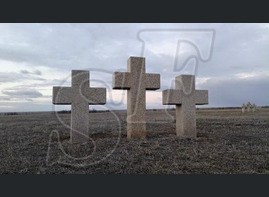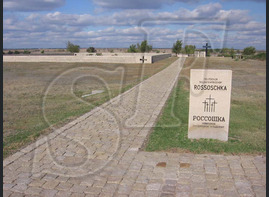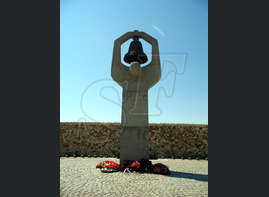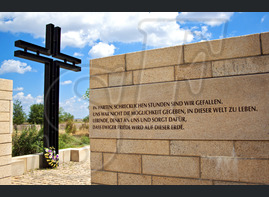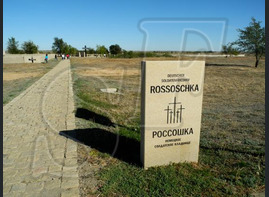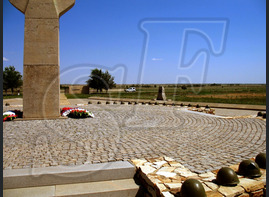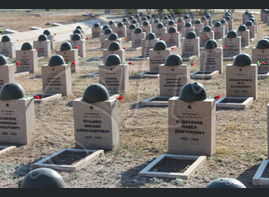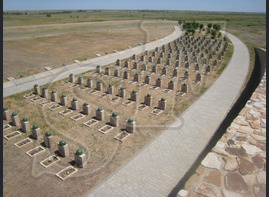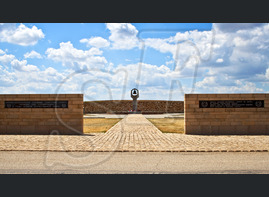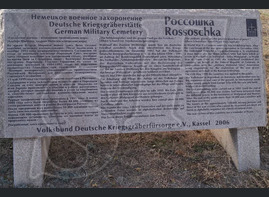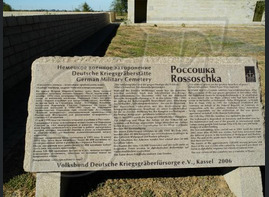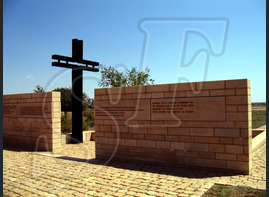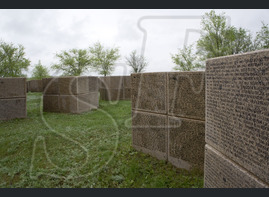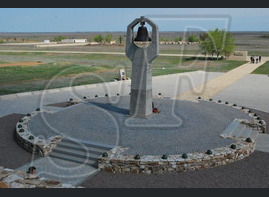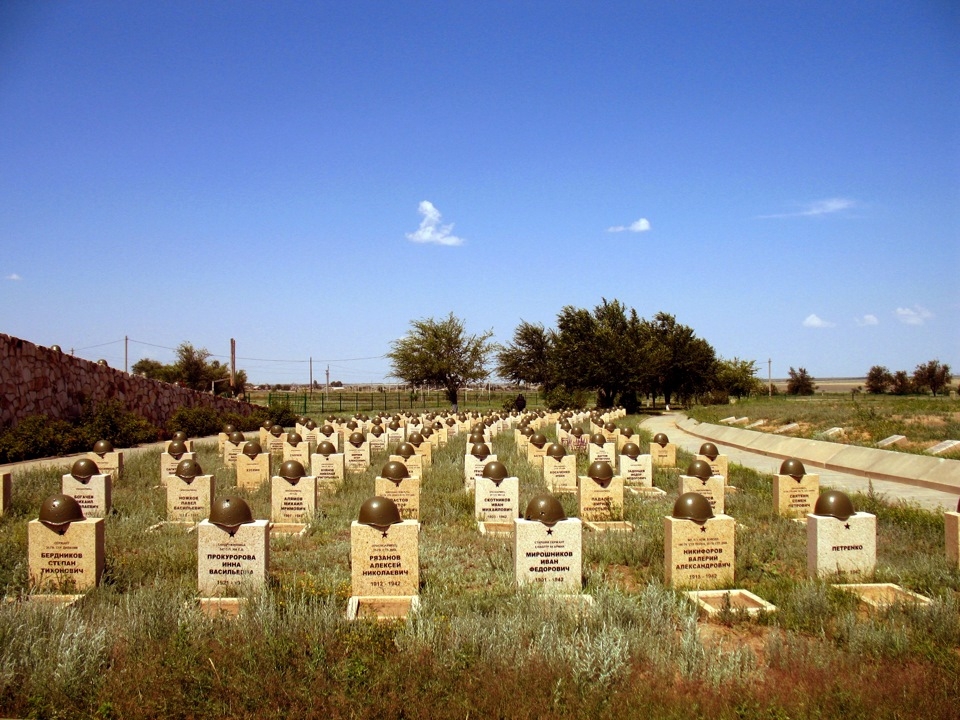 Tour to Rossoshka war memorials and cemeteries of Soviet, German and Romanian soldiers and officers died during the Battle of Stalingrad. Today here buried more than 20.000 Soviet/Russian, 2.000 Romanian and 60.000 German soldiers and officers fallen in the fightings for Stalingrad, 1942-1943. During the tour to the village Rossoshka you will learn about the fierce fightings here during August 1942 and January 1943. You will also learn the story of these memorials and annual search works of excavation volunteer teams. The tour includes visit to the 3 memorial cemeteries and museum of excavations and search works on the fields of Volgograd (former Stalingrad). On the way to memorials you will enjoy the stories and the view of local country side and Stalingrad steppe. «The soldiers' graves are the greatest preachers of peace» - Albert Schweitzer Nobel Peace Prize laureate. In World War II a German cemetery was established here. After the conclusion of the war graves agreement in December 1992 the Volksbund Deutsche Kriegsgraberfursorge e, V, established a mass burial site for those soldiers who had been killed in action in the battles of Stalingrad - today Volgograd - in World War II. From 1994 to 1995 the Volksbund established this cemetery on behalf of the Federal Republic of Germany in cooperation with the "Military memorial Sites". Association being responsible for the realization of the war graves agreement on behalf of the Russian Federation. Description Tour to Rossoshka war memorials and cemeteries of Soviet, German and Romanian soldiers and officers died during the Battle of Stalingrad. Today here buried more than 20.000 Soviet/Russian, 2.000 Romanian and 60.000 German soldiers and officers fallen in the fightings for Stalingrad, 1942-1943. During the tour to the village Rossoshka you will learn about the fierce fightings here during August 1942 and January 1943. You will also learn the story of these memorials and annual search works of excavation volunteer teams. The tour includes visit to the 3 memorial cemeteries and museum of excavations and search works on the fields of Volgograd (former Stalingrad). On the way to memorials you will enjoy the stories and the view of local country side and Stalingrad steppe. «The soldiers' graves are the greatest preachers of peace» - Albert Schweitzer Nobel Peace Prize laureate. In World War II a German cemetery was established here. After the conclusion of the war graves agreement in December 1992 the Volksbund Deutsche Kriegsgraberfursorge e, V, established a mass burial site for those soldiers who had been killed in action in the battles of Stalingrad - today Volgograd - in World War II. From 1994 to 1995 the Volksbund established this cemetery on behalf of the Federal Republic of Germany in cooperation with the "Military memorial Sites". Association being responsible for the realization of the war graves agreement on behalf of the Russian Federation. On 15th May 1999 the cemetery was opened to the public. The Volksbund is dependent on donation and member fees for maintenance and care of the ground. In international youth camps young people from Europe help with the care and build bridges of understanding. The first embeddings were carried out in 1993 until the end of 2005 more than 48 000 war victims had been recovered from the different grave in the territories of Volgograd and Rostov-on-Don. After the end of the works more than 60 000 war casualties will find their rest here. The names of the approximately 150 000 missing persons and those of the war victims who cannot be recovered any more are listed in alphabetic sequence on a block of natural stone. The war victims of this cemetery are a reminder of Peace.
Tour to Rossoshka war memorials and cemeteries of Soviet, German and Romanian soldiers and officers died during the Battle of Stalingrad. Today here buried more than 20.000 Soviet/Russian, 2.000 Romanian and 60.000 German soldiers and officers fallen in the fightings for Stalingrad, 1942-1943. During the tour to the village Rossoshka you will learn about the fierce fightings here during August 1942 and January 1943. You will also learn the story of these memorials and annual search works of excavation volunteer teams. The tour includes visit to the 3 memorial cemeteries and museum of excavations and search works on the fields of Volgograd (former Stalingrad). On the way to memorials you will enjoy the stories and the view of local country side and Stalingrad steppe. «The soldiers' graves are the greatest preachers of peace» - Albert Schweitzer Nobel Peace Prize laureate. In World War II a German cemetery was established here. After the conclusion of the war graves agreement in December 1992 the Volksbund Deutsche Kriegsgraberfursorge e, V, established a mass burial site for those soldiers who had been killed in action in the battles of Stalingrad - today Volgograd - in World War II. From 1994 to 1995 the Volksbund established this cemetery on behalf of the Federal Republic of Germany in cooperation with the "Military memorial Sites". Association being responsible for the realization of the war graves agreement on behalf of the Russian Federation. Description Tour to Rossoshka war memorials and cemeteries of Soviet, German and Romanian soldiers and officers died during the Battle of Stalingrad. Today here buried more than 20.000 Soviet/Russian, 2.000 Romanian and 60.000 German soldiers and officers fallen in the fightings for Stalingrad, 1942-1943. During the tour to the village Rossoshka you will learn about the fierce fightings here during August 1942 and January 1943. You will also learn the story of these memorials and annual search works of excavation volunteer teams. The tour includes visit to the 3 memorial cemeteries and museum of excavations and search works on the fields of Volgograd (former Stalingrad). On the way to memorials you will enjoy the stories and the view of local country side and Stalingrad steppe. «The soldiers' graves are the greatest preachers of peace» - Albert Schweitzer Nobel Peace Prize laureate. In World War II a German cemetery was established here. After the conclusion of the war graves agreement in December 1992 the Volksbund Deutsche Kriegsgraberfursorge e, V, established a mass burial site for those soldiers who had been killed in action in the battles of Stalingrad - today Volgograd - in World War II. From 1994 to 1995 the Volksbund established this cemetery on behalf of the Federal Republic of Germany in cooperation with the "Military memorial Sites". Association being responsible for the realization of the war graves agreement on behalf of the Russian Federation. On 15th May 1999 the cemetery was opened to the public. The Volksbund is dependent on donation and member fees for maintenance and care of the ground. In international youth camps young people from Europe help with the care and build bridges of understanding. The first embeddings were carried out in 1993 until the end of 2005 more than 48 000 war victims had been recovered from the different grave in the territories of Volgograd and Rostov-on-Don. After the end of the works more than 60 000 war casualties will find their rest here. The names of the approximately 150 000 missing persons and those of the war victims who cannot be recovered any more are listed in alphabetic sequence on a block of natural stone. The war victims of this cemetery are a reminder of Peace.

